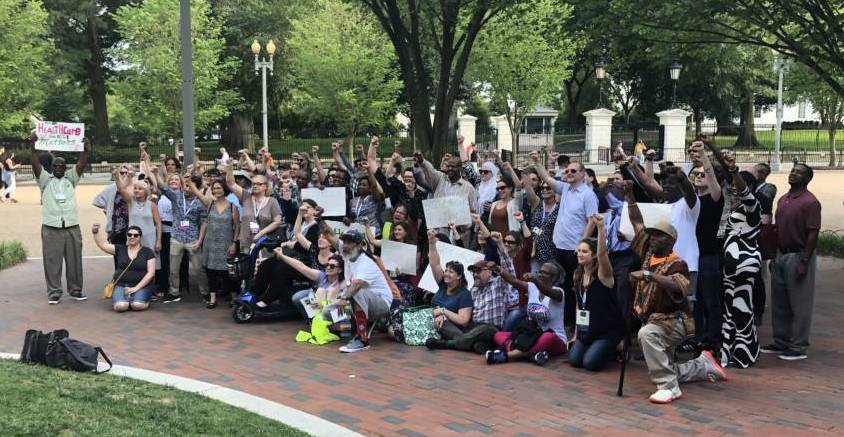More than 50 activists and advocates gathered in Lafayette Square across from the White House on May 24 to demand that housing be considered a human right.
The rally – part of the National Health Care for the Homeless Council’s annual conference in the District – featured more than 10 speakers who rallied the crowd to highlight housing as an integral part of health care. Activists held signs that read “housing rights” and “health care for all” and chanted “Housing is a human right. Fight, fight, fight!”
Paul Tunison, a board member of the National Consumer Advisory Board from California, said housing should not be considered a privilege.
“It is up to everyone to demand that our rights for housing and health care be realized,” Tunison said.

Bobby Watts, CEO of the National Health Care for the Homeless Council, said human needs are not being met in the United States because not having a home is a violation of basic and fundamental human rights.
“I say it is evil because not having a home kills people, not having a home destroys your opportunity,” Watts said. “Not having a home is one of the things that will keep you from reaching your full potential.”
He said elected officials in the United States have fallen short of the ideals set by the country’s founding fathers, because in the United States today, profits take priority over the people that officials are elected to serve.
“We have to demand that this government … goes to the effort to make sure that everyone has these rights met,” he said. “If we don’t, then this country is failing and it is living a lie.”
Catherine Crosland, a doctor for Unity Health Care in Washington, D.C., described one of her patients who lost her housing due to “unfortunate circumstances.” The woman had been stably housed for years and lived with several medical conditions, like heart problems and high blood pressure.
Within one month of living in a family shelter – relying on fast food and soup kitchens – Crosland’s patient ended up in the emergency room. She died just five weeks after losing her housing.
“The best evidence-based intervention that extends the lives of people experiencing homelessness is housing,” Crosland said.








